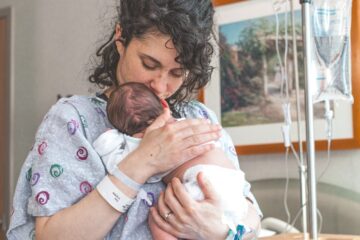
When discussing the appropriate gestational age, we must take into account the many factors that affect a woman’s ability to conceive and give birth in good health. Although there is a general trend that the ideal conception age is after the younger years, the final decision should be based on a woman’s individual circumstances and current medical trends.
In the past, women generally resorted to getting pregnant at an earlier age, due to social, cultural, and economic conditions that encouraged early marriage and childbearing. However, recent studies have provided evidence suggesting that there are benefits to postponing pregnancy until later in life.
One important factor to consider is a woman’s physical and mental maturity. The human body is considered ready for pregnancy when it is able to withstand the additional physical exertion and hormonal changes that occur during pregnancy. Generally, adolescence is considered too early for pregnancy, as a girl’s body is not yet fully developed and may not be fully prepared to safely conceive and give birth.
Medically speaking, the age of 20 and beyond is considered ideal for pregnancy. Women at this stage are often able to conceive with relative ease and have higher success rates in maintaining a healthy pregnancy and avoiding complications. However, women planning a pregnancy at this stage should be guided to implement healthy habits and receive proper medical care.
After the age of 35, some of the challenges and potential risks of pregnancy increase. It may increase the risk of health issues such as high blood pressure, diabetes, and birth defects. The risk of health issues for the fetus and the need for more specialized medical care during pregnancy may also increase. However, this does not mean that getting pregnant after 35 is not possible or risky. Many women have healthy pregnancies and safe deliveries in this age group. However, women who are planning to get pregnant after 35 are advised to check with their doctor to assess their overall health and evaluate potential risks.
It is worth noting that the decision on the age of conception should be personalized and based on individual circumstances. There may be personal, social and economic factors that influence a woman’s decision to become pregnant at a particular time. A woman should communicate with her partner and health care providers to get proper counseling and check her health status and specific needs.
Ultimately, there is no set age that can be considered optimal for pregnancy for everyone. Women should consider their health status and personal and social factors when making the decision to become pregnant. It is important that women receive appropriate medical care and work to maintain their overall health before and during pregnancy, regardless of the age at which they choose to become pregnant.


0 Comments